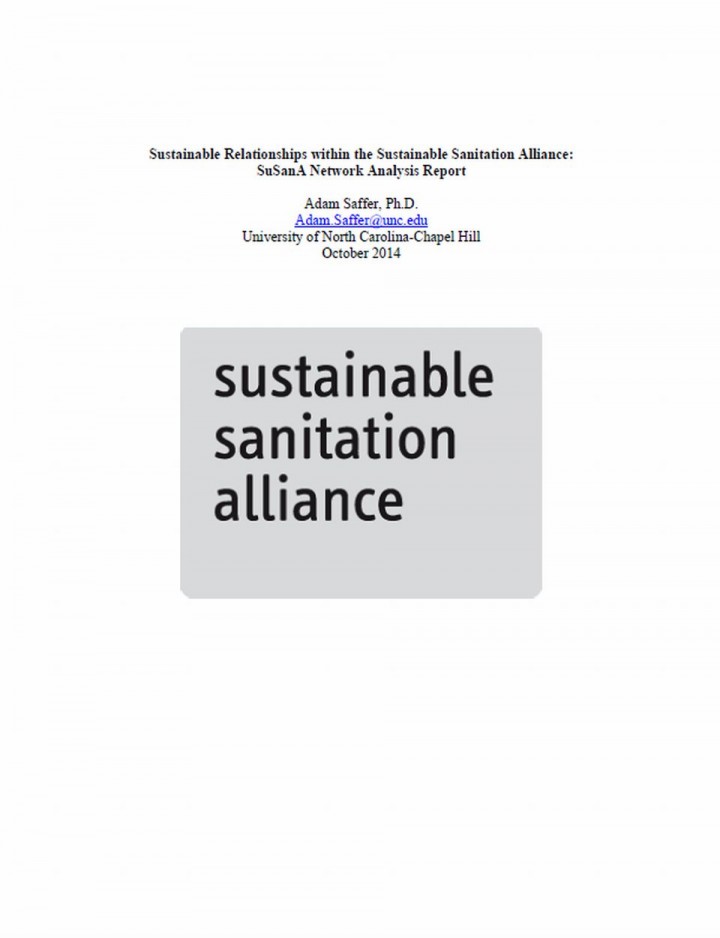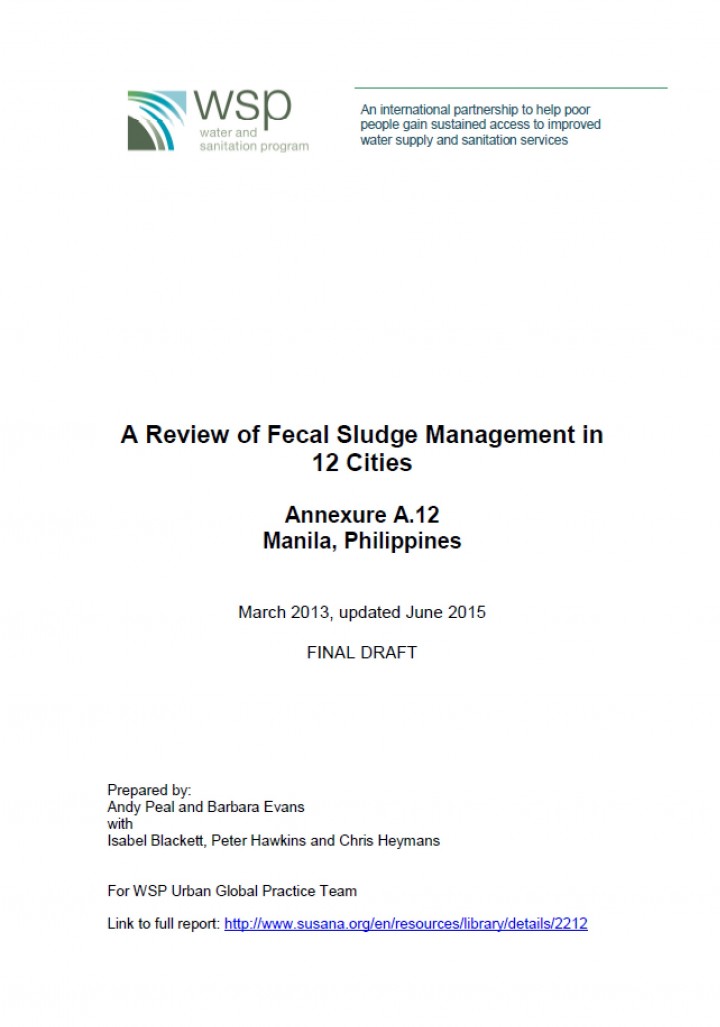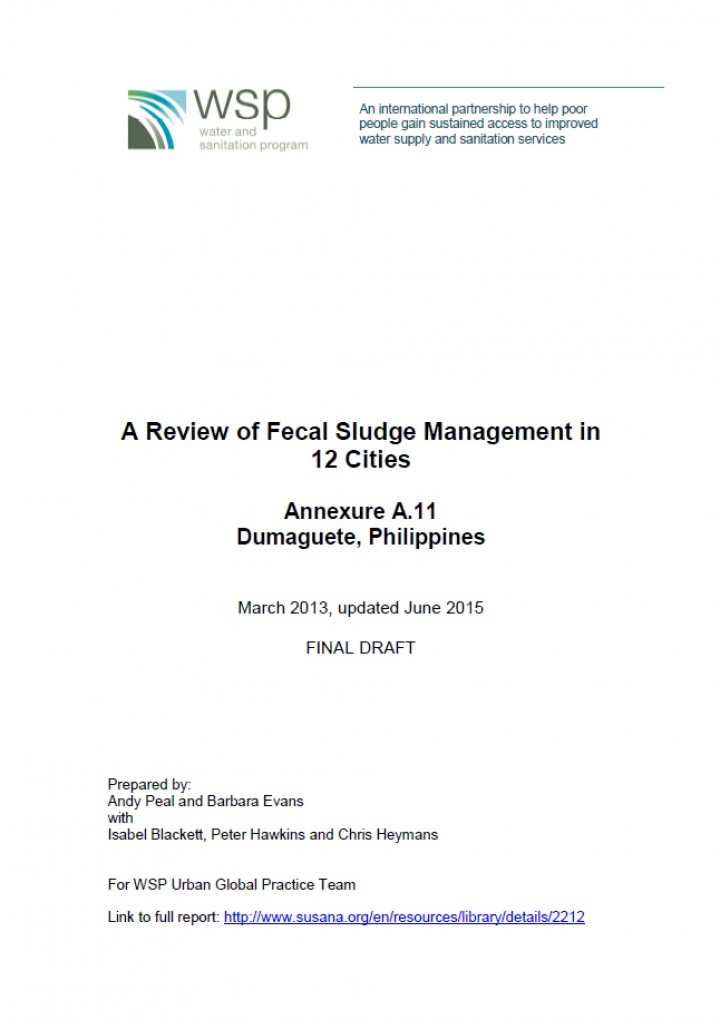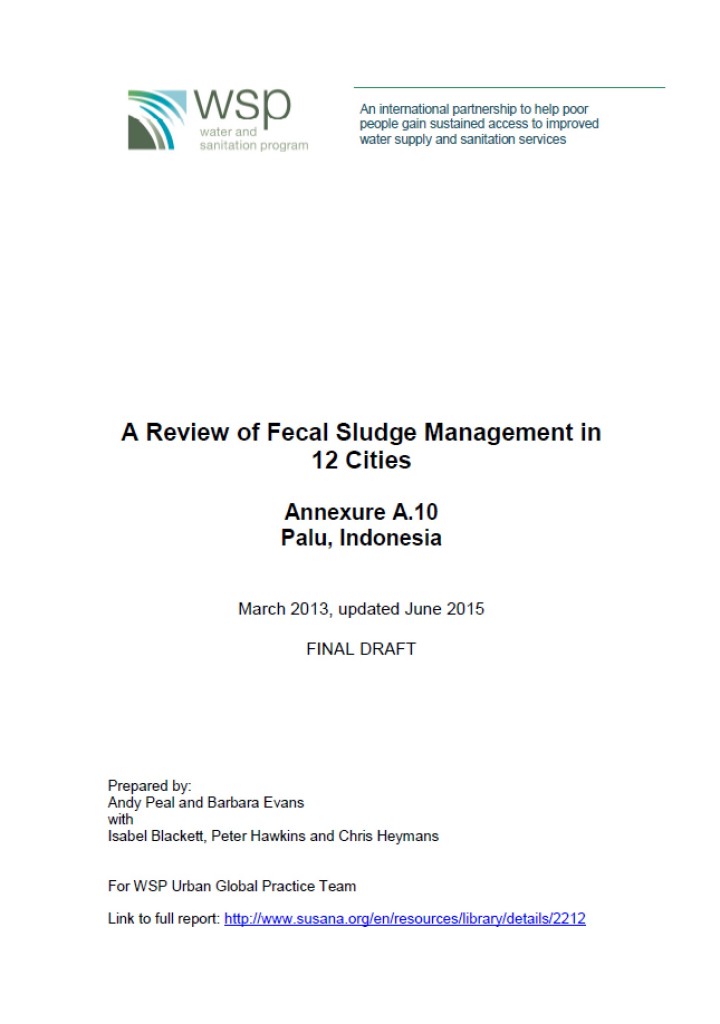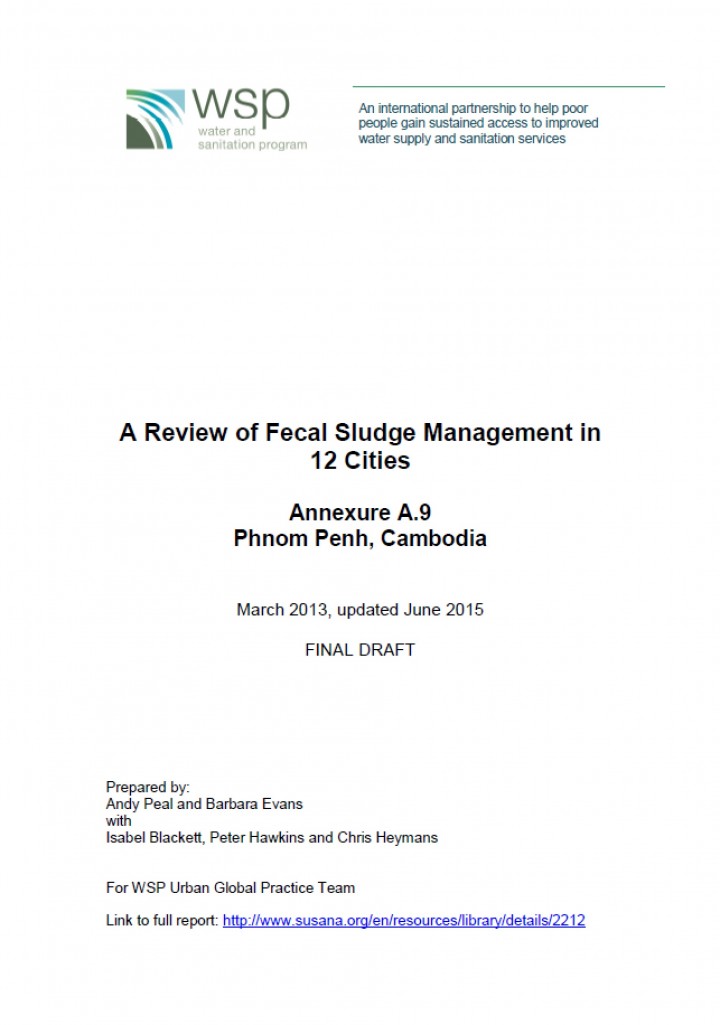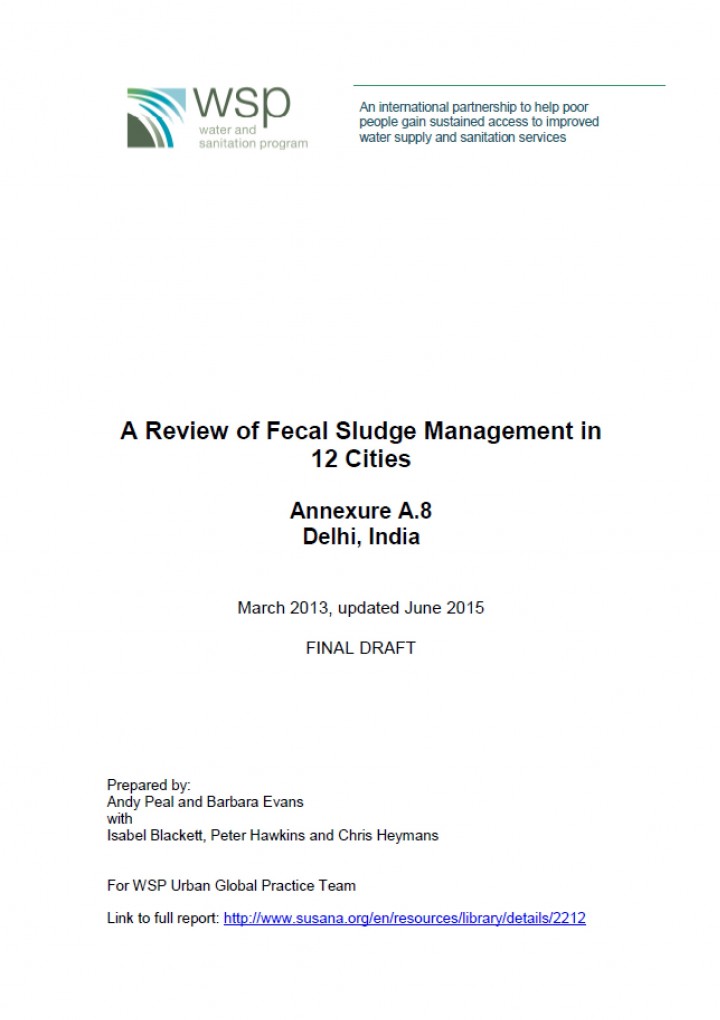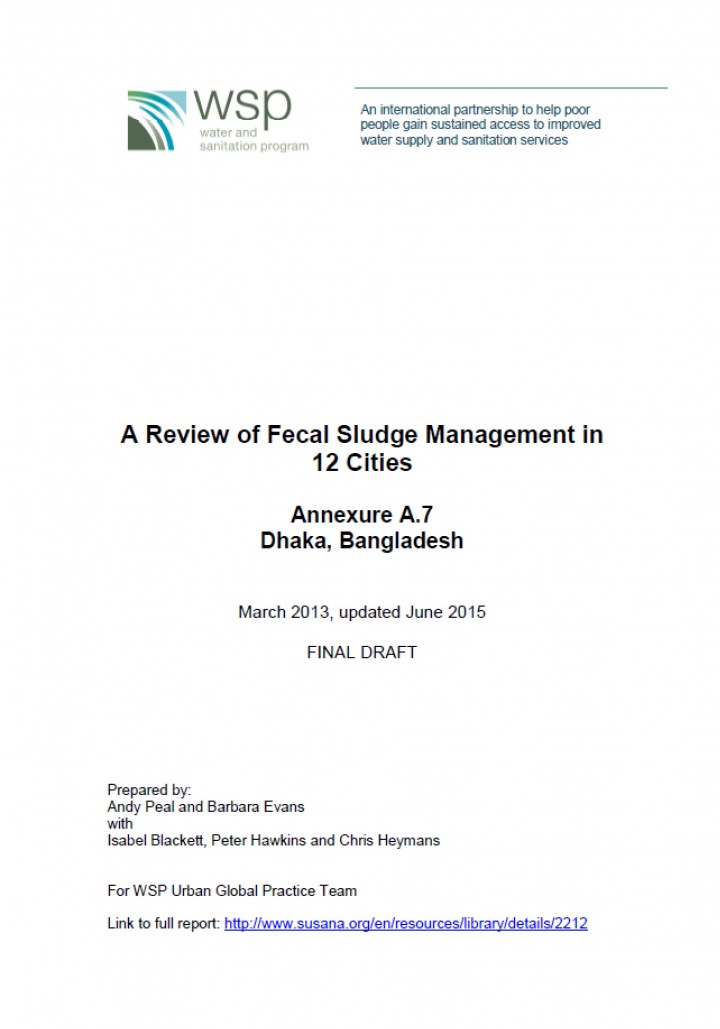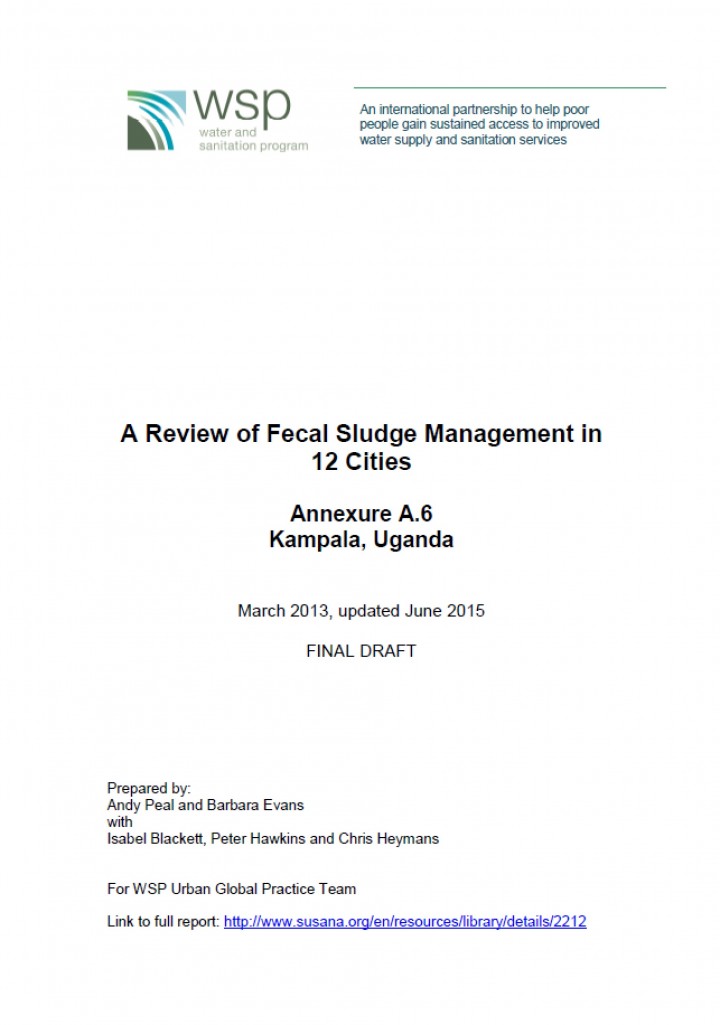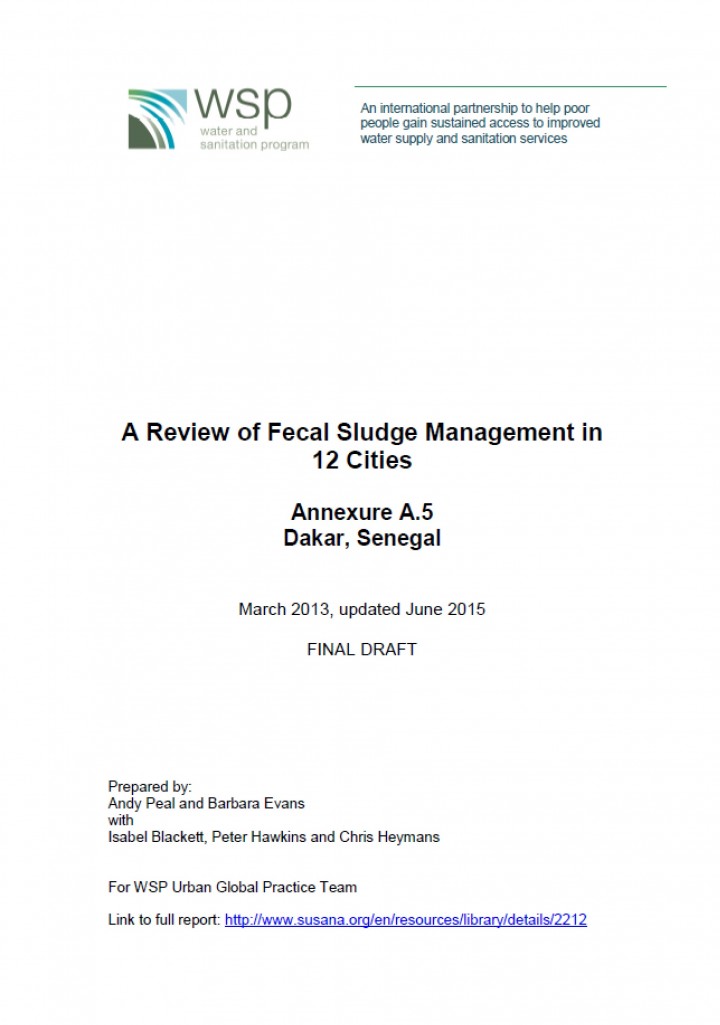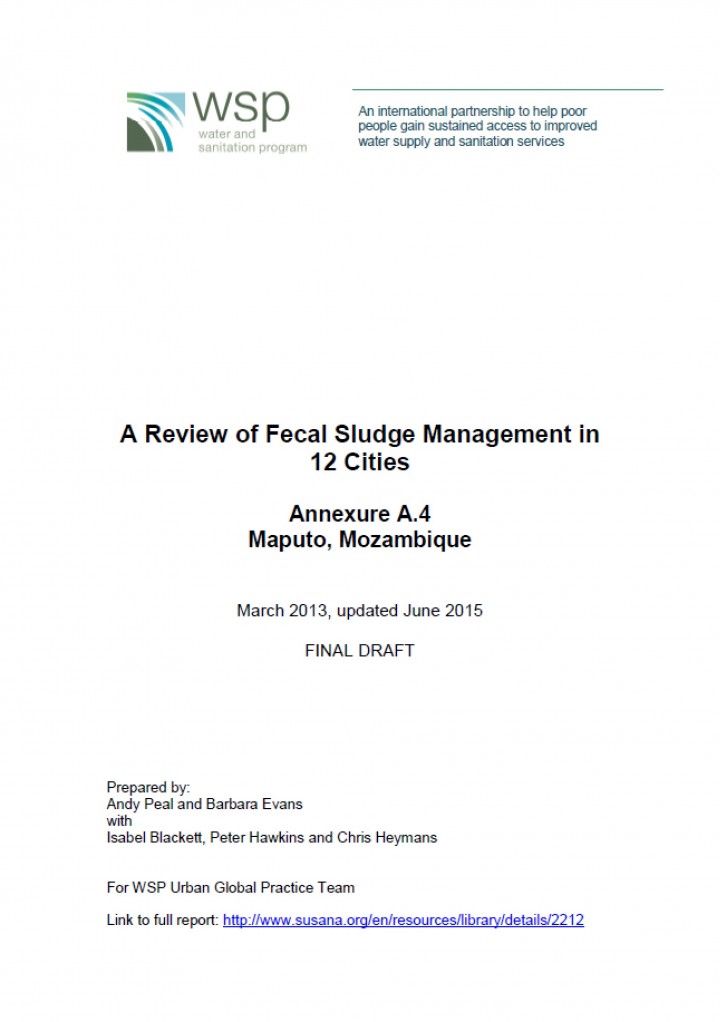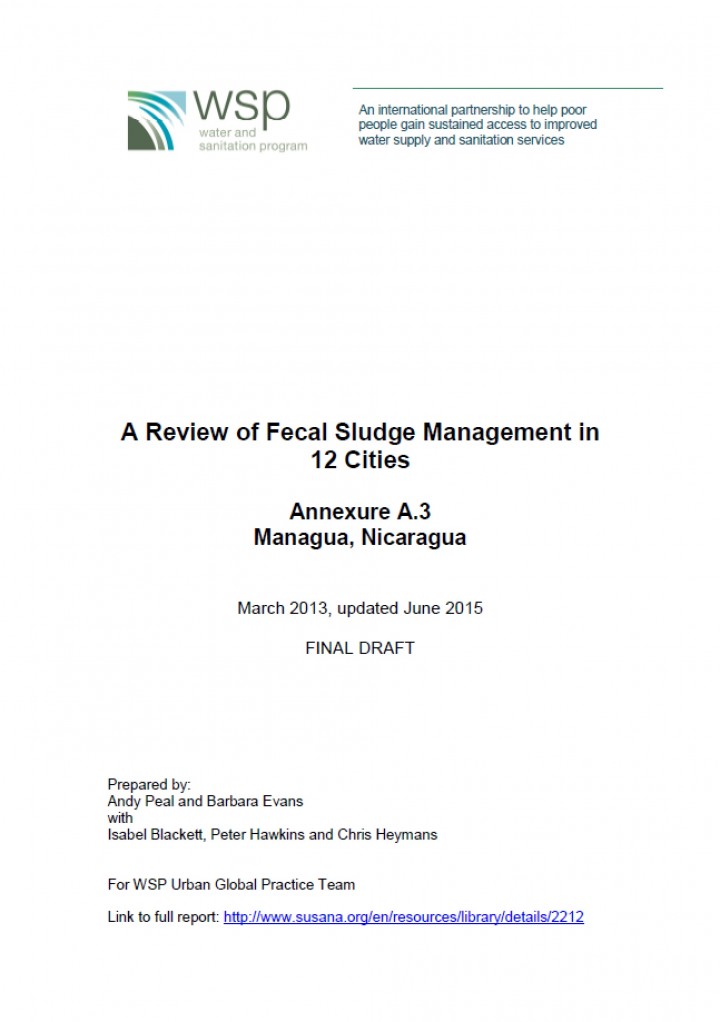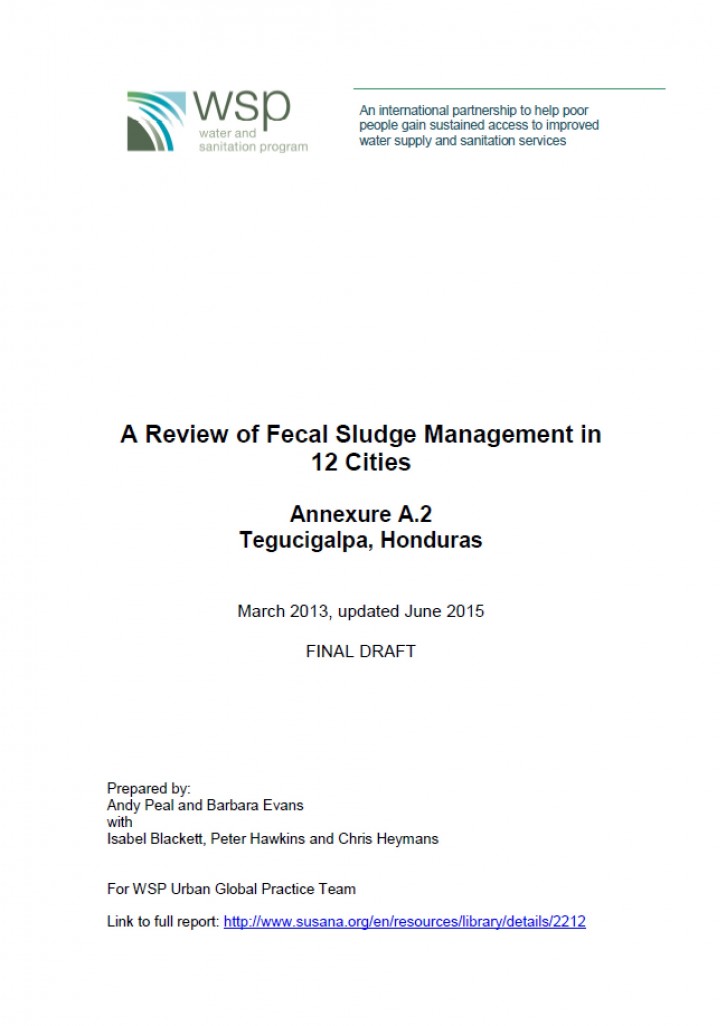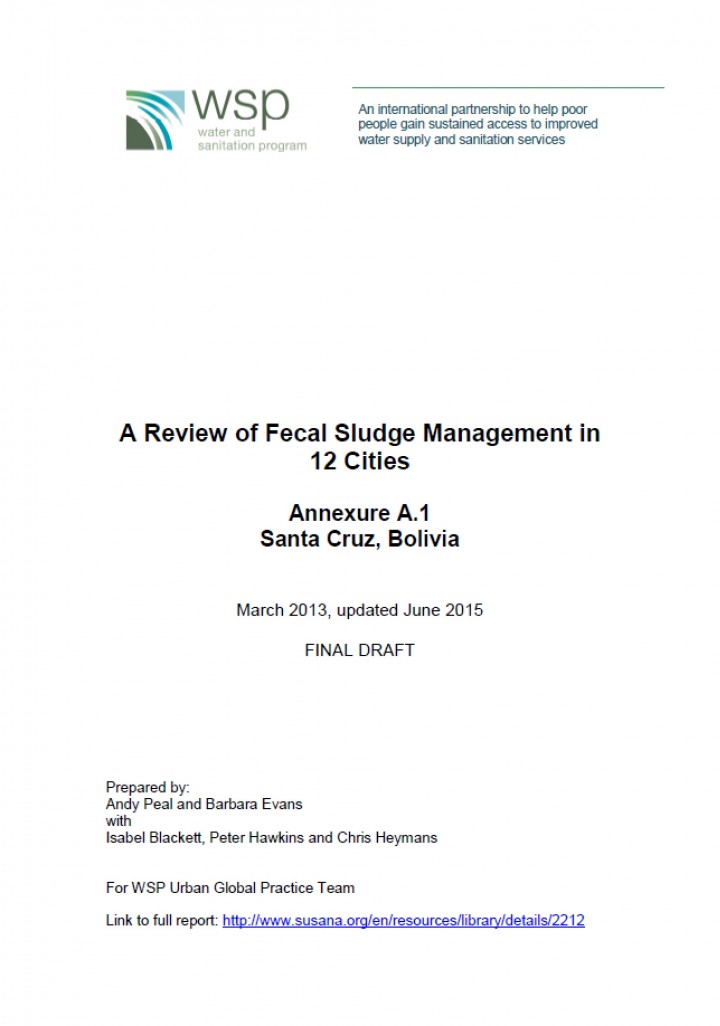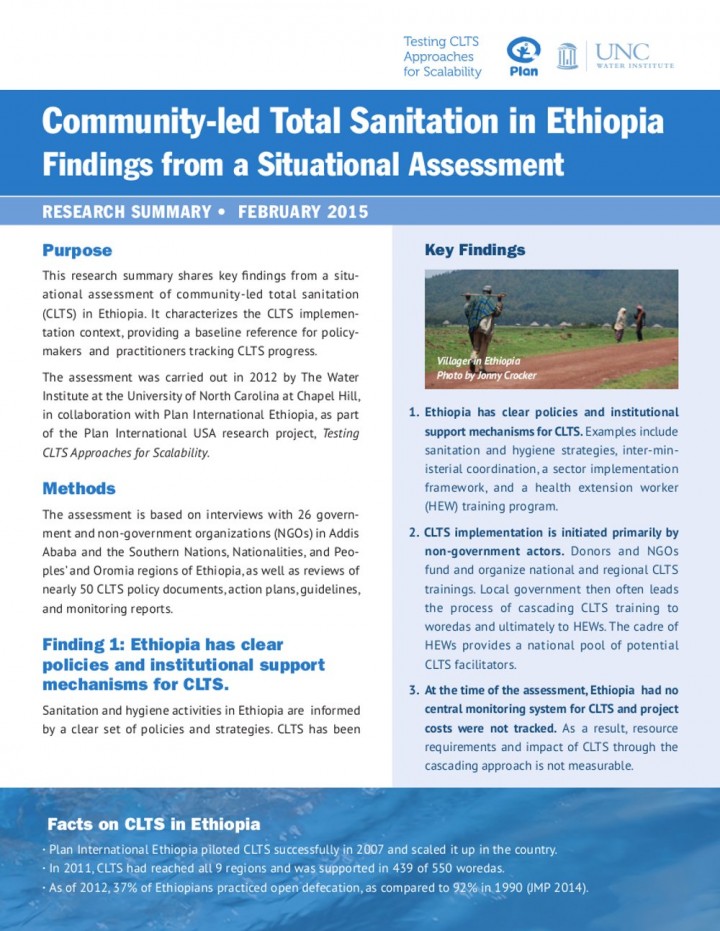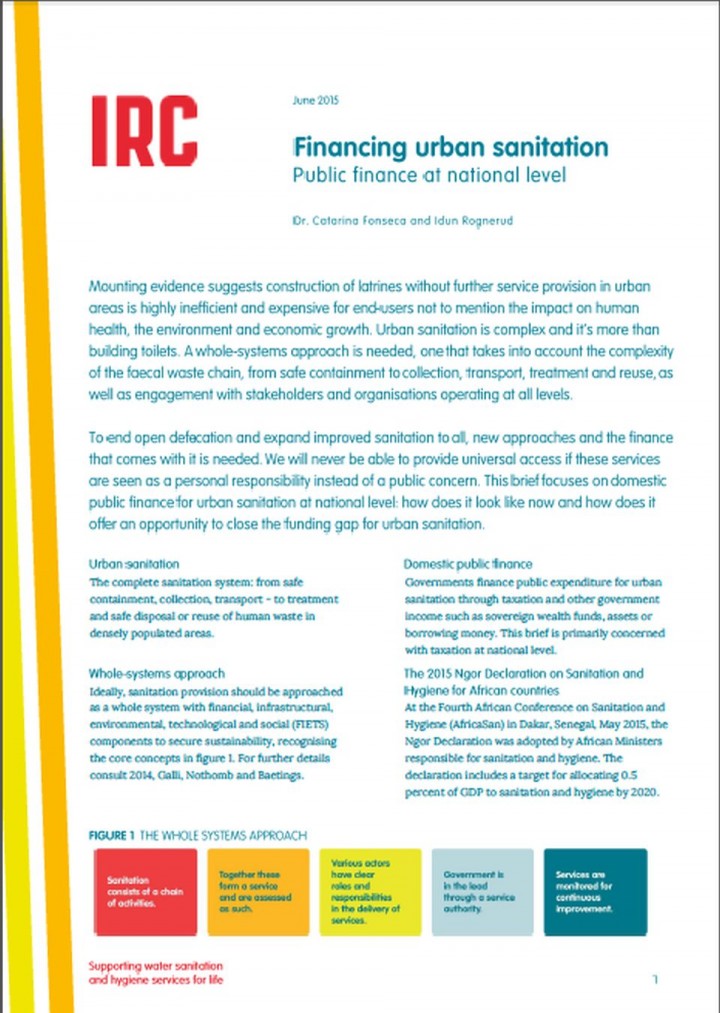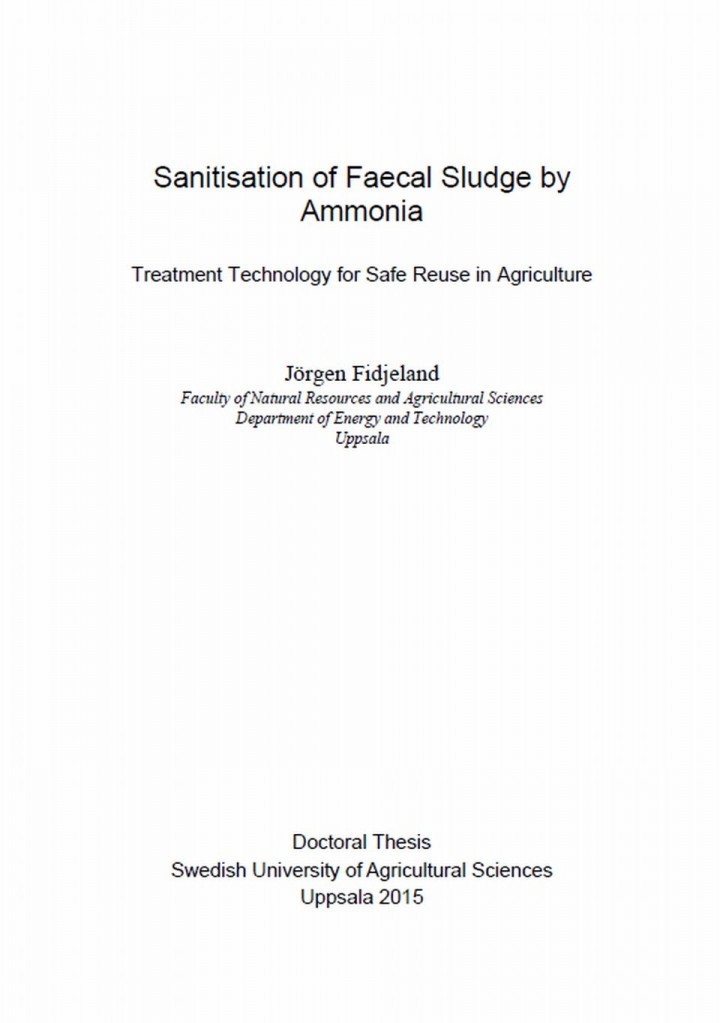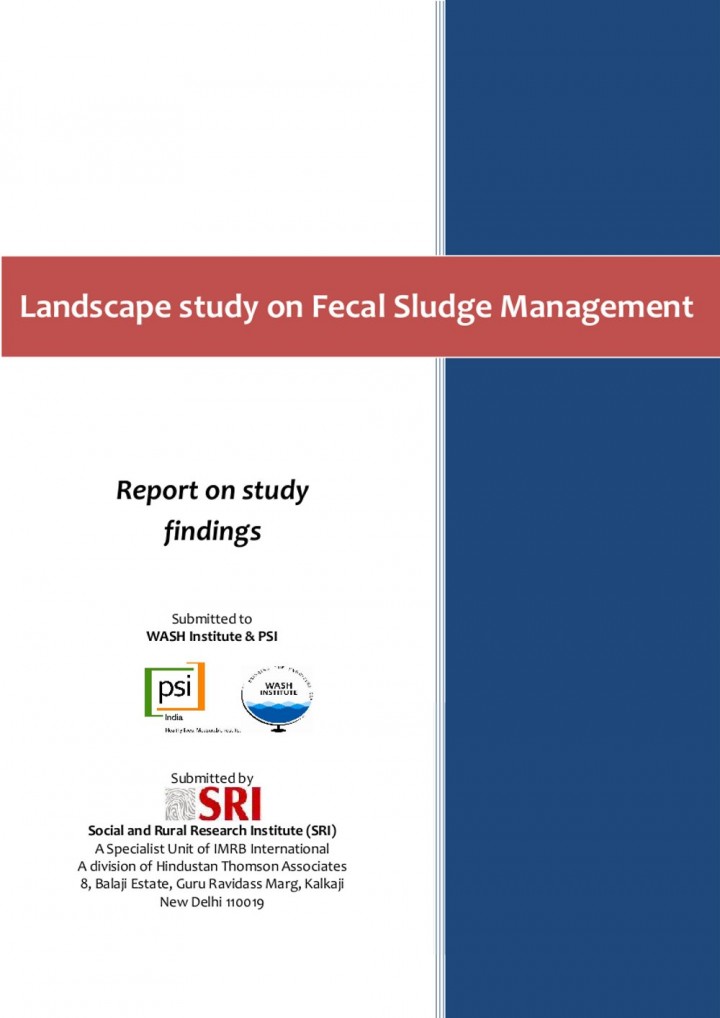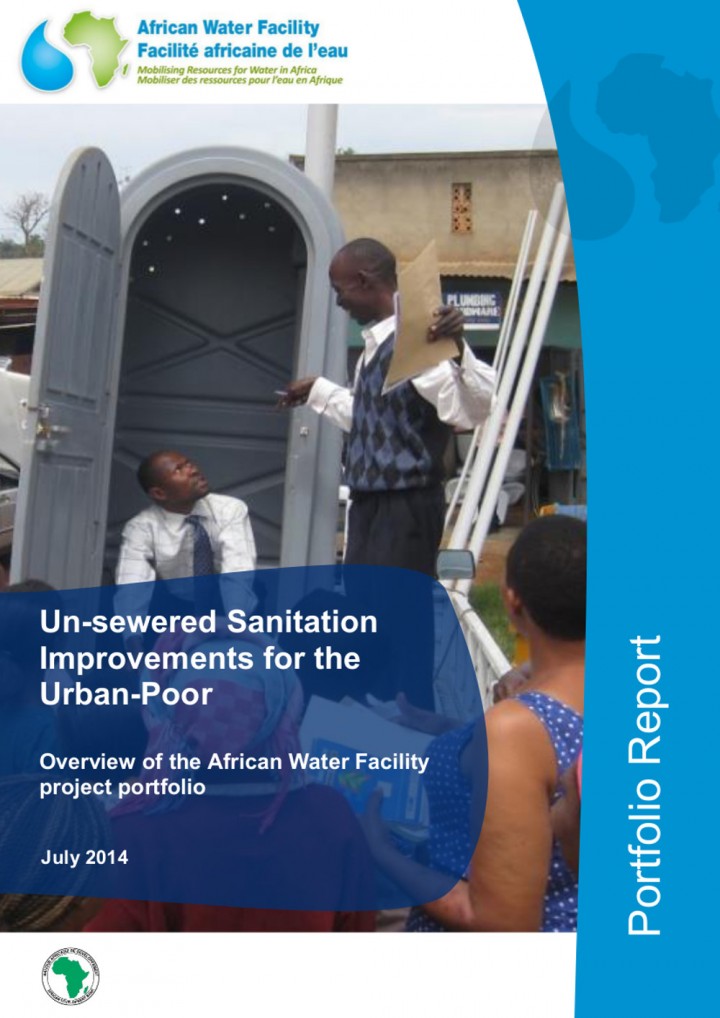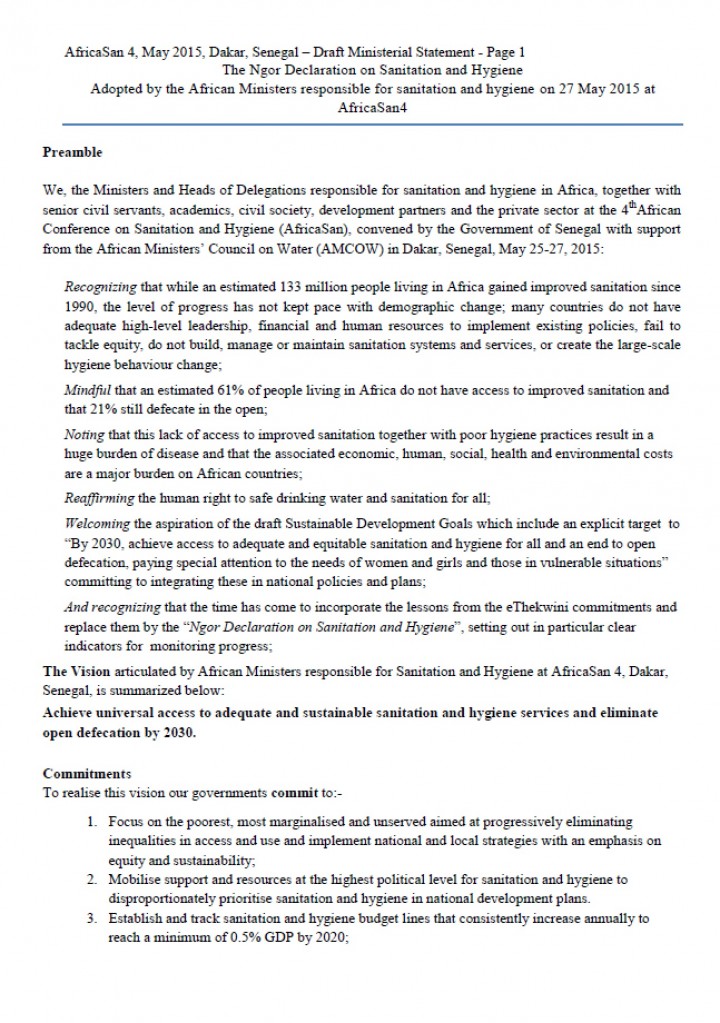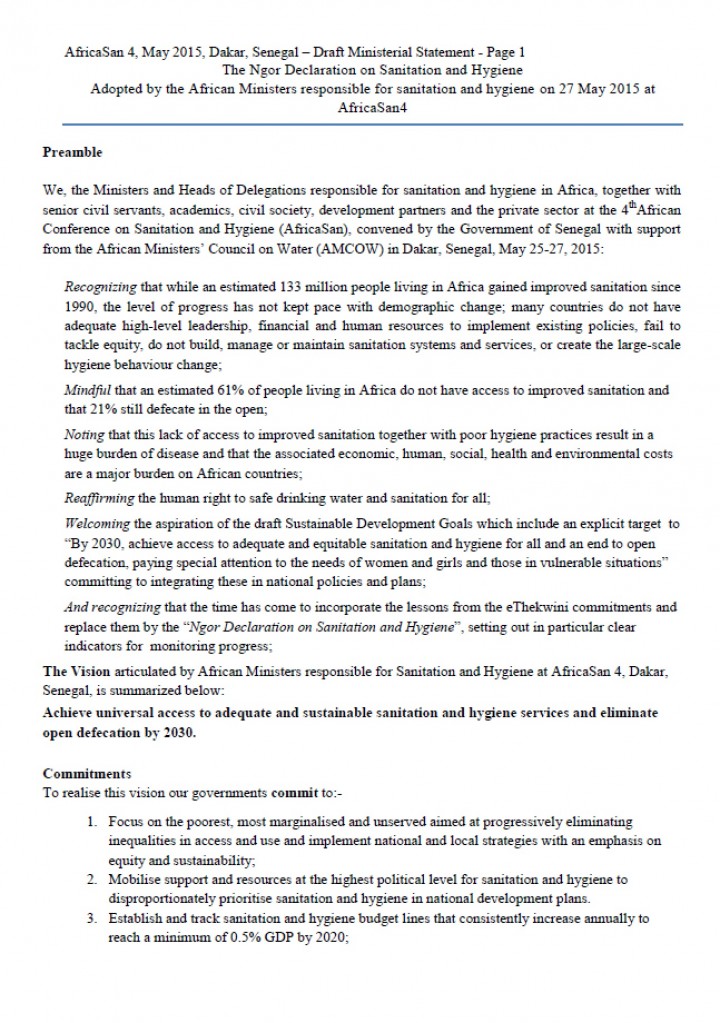Peal, A., Evans, B., Blackett, I., Hawkins, P., Heymans, C. (2015) A Review of Fecal Sludge Management in 12 Cities - Annex A.12 Manila, Philippines Unpublished Report (Final Draft)
Peal, A., Evans, B., Blackett, I., Hawkins, P., Heymans, C. (2015) A Review of Fecal Sludge Management in 12 Cities - Annex A.11 Dumaguete, Philippines Unpublished Report (Final Draft)
Peal, A., Evans, B., Blackett, I., Hawkins, P., Heymans, C. (2015) A Review of Fecal Sludge Management in 12 Cities - Annex A.10 Palu, Indonesia Unpublished Report (Final Draft)
Peal, A., Evans, B., Blackett, I., Hawkins, P., Heymans, C. (2015) A Review of Fecal Sludge Management in 12 Cities - Annex A.9 Phnom Penh, Cambodia Unpublished Report (Final Draft)
Peal, A., Evans, B., Blackett, I., Hawkins, P., Heymans, C. (2015) A Review of Fecal Sludge Management in 12 Cities - Annex A.8 Delhi, India Unpublished Report (Final Draft)
Peal, A., Evans, B., Blackett, I., Hawkins, P., Heymans, C. (2015) A Review of Fecal Sludge Management in 12 Cities - Annex A.7 Dhaka, Bangladesh Unpublished Report (Final Draft)
Peal, A., Evans, B., Blackett, I., Hawkins, P., Heymans, C. (2015) A Review of Fecal Sludge Management in 12 Cities - Annex A.6 Kampala, Uganda Unpublished Report (Final Draft)
Peal, A., Evans, B., Blackett, I., Hawkins, P., Heymans, C. (2015) A Review of Fecal Sludge Management in 12 Cities - Annex A.5 Dakar, Senegal Unpublished Report (Final Draft)
Peal, A., Evans, B., Blackett, I., Hawkins, P., Heymans, C. (2015) A Review of Fecal Sludge Management in 12 Cities - Annex A.4 Maputo, Mozambique Unpublished Report (Final Draft)
Peal, A., Evans, B., Blackett, I., Hawkins, P., Heymans, C. (2015) A Review of Fecal Sludge Management in 12 Cities - Annex A.3 Managua, Nicaragua Unpublished Report (Final Draft)
Peal, A., Evans, B., Blackett, I., Hawkins, P., Heymans, C. (2015) A Review of Fecal Sludge Management in 12 Cities - Annex A.2 Tegucigalpa, Honduras Unpublished Report (Final Draft)
Peal, A., Evans, B., Blackett, I., Hawkins, P., Heymans, C. (2015) A Review of Fecal Sludge Management in 12 Cities - Annex A.1 Santa Cruz, Bolivia Unpublished Report (Final Draft)
Various authors (2015) Testing CLTS Approaches for Scalability Various documents on results from research grant
Fonseca, C., Rognerud, I. (2015) Financing Urban Sanitation Public Finance at National Level
Fidjeland, J. (2015) Sanitisation of faecal sludge by ammonia Treatment technology for safe reuse in agriculture
Faecal sludge contains valuable plant nutrients and can be used as a fertiliser in agriculture, instead of being emitted as a pollutant. As this involves a risk of pathogen transmission, it is crucial to inactivate the pathogens in faecal sludge. One treatment alternative is ammonia sanitisation, as uncharged ammonia (NH₃) inactivates pathogens. The aim of this thesis was to study how the pathogen inactivation depends […]
Various authors (2015) Project Prasaadhan - Business model development for fecal sludge management in rural Bihar Various documents on results from research grant
Various authors (2015) Municipal-supported unsewered sanitation improvements for the urban-poor Various documents on results from research grant
This library entry contains background documents for work that the African Water Facility is carrying out and which is co-funded by the Bill and Melinda Gates Foundation. Further information is also available on the SuSanA discussion forum, see link below. The purpose of the project is to improve the living conditions of the non-sewered urban-poor in Africa through provision of affordable and sustainable sanitation tools and technologies. +++++++++++ Documents […]
Ministres et chefs de délégation, en charge de l'hygiène et de l’assainissement de l’Afrique, ainsi que les hauts fonctionnaires, chercheurs, société civile, partenaires au développement et secteur privé (2015) Déclaration de Ngor sur l’hygiène et l’assainissement (in French) Ngor declaration about hygiene and sanitation
À la quatrième Conférence régionale sur l'hygiène et l'assainissement en Afrique (Africasan4) tenue du 25 au 27 mai 2015 à Dakar et organisée par le gouvernement du Sénégal avec l’appui du conseil des ministres africains de l’eau et l’assainissement (AMCOW), ministres et chefs de délégation, en charge de l'hygiène et de l’assainissement de l’Afrique, ainsi que les hauts fonctionnaires, chercheurs, société civile, partenaires au développement […]
Various Authors (2015) The Ngor Declaration on Sanitation and Hygiene Adopted by the African Ministers responsible for sanitation and hygiene on 27 May 2015 at AfricaSan4 (in English and French)
At the 4thAfrican Conference on Sanitation and Hygiene (AfricaSan), convened by the Government of Senegal with support from the African Ministers’ Council on Water (AMCOW) in Dakar, Senegal, May 25-27, 2015, the Ministers and Heads of Delegations responsible for sanitation and hygiene in Africa, together with senior civil servants, academics, civil society, development partners and the private sector signed visions and committments to achieve universal […]
